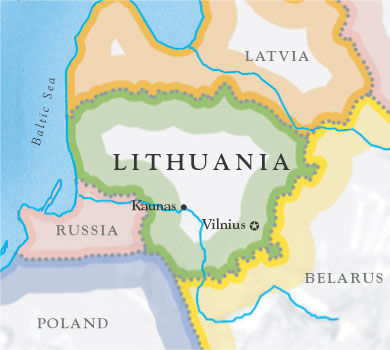Trial begins in Lithuania of alleged Real IRA man
 Vilnius - Some court proceedings in the trial of an Irishman accused of attempting to buy arms for a paramilitary group will be held behind closed doors to protect the identities of secret service operatives, a local news agency said Tuesday.
Vilnius - Some court proceedings in the trial of an Irishman accused of attempting to buy arms for a paramilitary group will be held behind closed doors to protect the identities of secret service operatives, a local news agency said Tuesday.
The trial of the man, 36-year-old Michael Campbell, opened on Tuesday in Vilnius District Court in the Lithuanian capital. Campbell made a fresh application for bail, and a decision on it is due by August 21.
Campbell is accused of attempting to buy arms for the dissident paramilitary group known as the Real IRA. He was arrested in Lithuania in January 2008 after a sting operation involving British, Irish and Lithuanian security services. He has been in custody ever since.
The court ruled that some sessions of the trial would be held behind closed doors to protect the identities of individuals employed by state security organizations, including agents of Britain's MI5 secret service, the Baltic News Service reported.
The decision to close some sessions was based on information submitted by the Lithuanian State Security Department (VSD), which said one witness could be on a Real IRA hit list.
Campbell's legal representatives asked for all sessions to be conducted in public. They say that their client was a victim of entrapment and that he was attempting to buy cigarettes rather than weapons when he handed over a large amount of cash to undercover agents posing as smugglers.
Most of Tuesday's hearing involved preliminary legalities with a close examination of the evidence likely to get underway in October.
The Real IRA split from the better-known Provisional Irish Republican Army (IRA) in 1997. While the IRA has laid down its arms and joined in the Northern Ireland peace protest, the smaller Real IRA favours the use of military methods to try to end British rule in Northern Ireland.
In the 1990s, many East European capitals became popular destinations for paramilitary groups around the globe looking to buy weapons. Large stocks of Soviet-era arms, plus officials open to corruption, created a lucrative marketplace that was quickly taken over by criminal gangs.
Lithuania joined the European Union in 2004.(dpa)